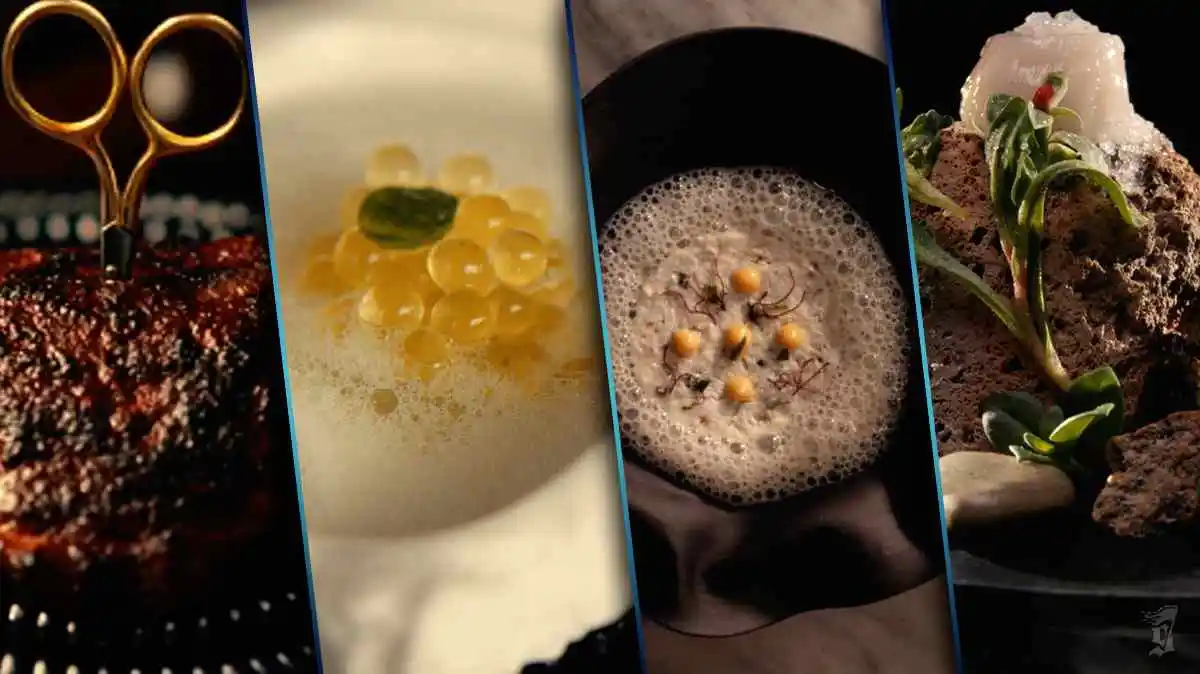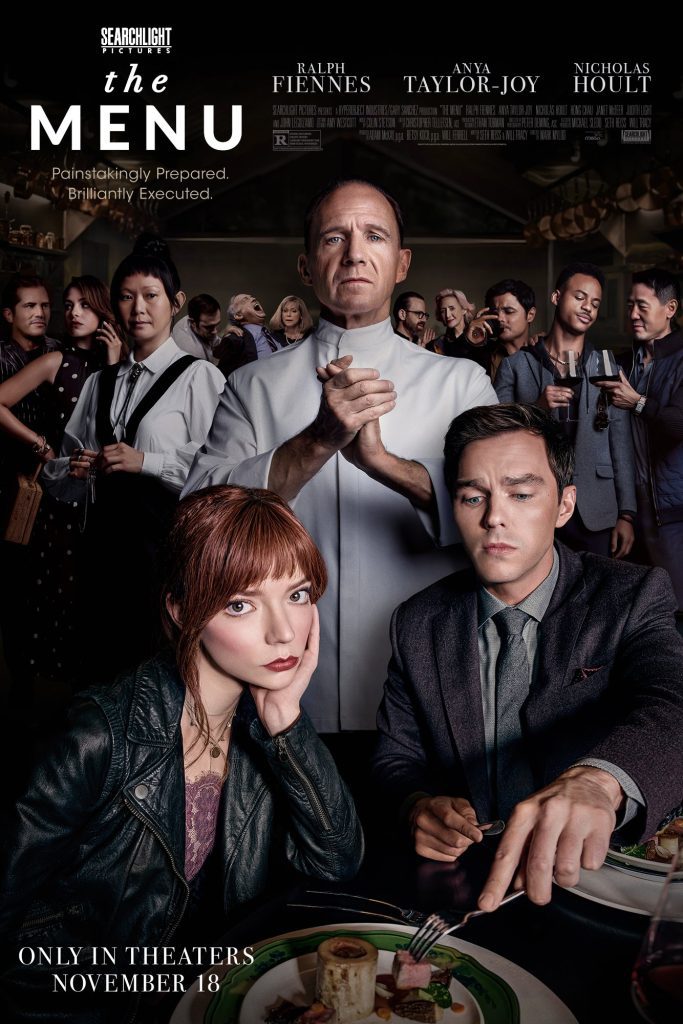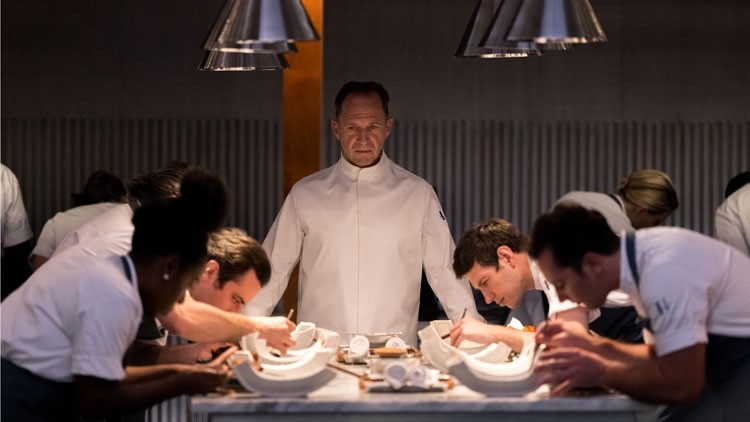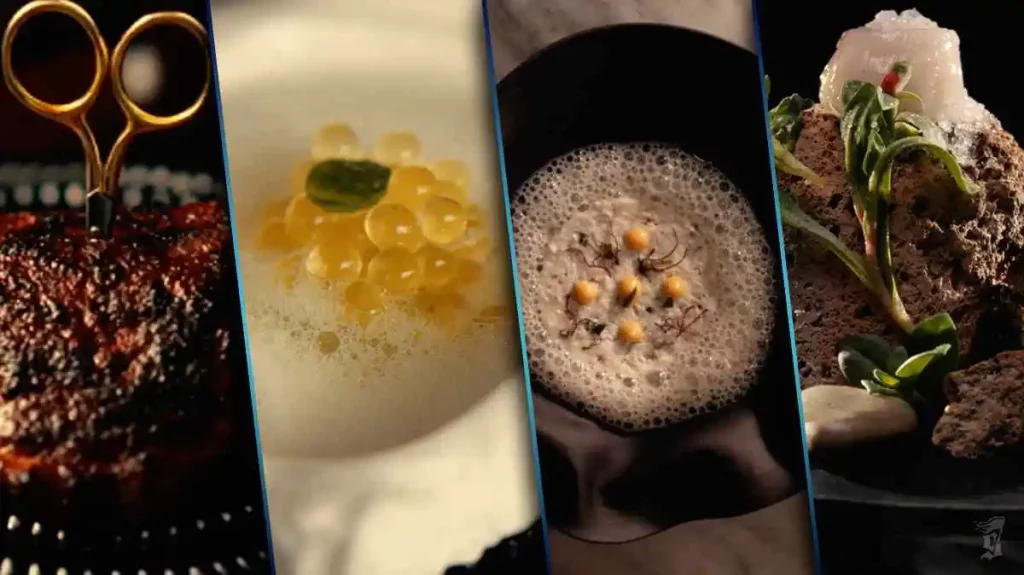
11 Mar ART – 273 “MENU”-an inspirational satire on snobbish ephemeral art for big money.
The menu, like most movies lately, is a hybrid of genres. On the one hand, it is a parody of culinary programs, where the preparation of dishes and their presentation resembles a show of the latest Victoria’s Secret products – you simply cannot take your eyes off the sense of the spectacle, as well as the form or (as the charismatic psychopath chef mentions in the film) the consistency of what what we see. On the other hand, it is a comedy with a strong accent of satire, because it is a mockery of the catering industry and its side products: snobby culinary critics, cunning celebrities who achieve fame and prestige, or class-affluent people who go to the same restaurant ad nauseam, because the more comfortable they are, and you also need to maintain a semblance of status.

Finally, Menu is a sublime horror with thriller elements. The idea is that the crème de la crème of the culinary, film, and business world that knows the chef is invited to his exclusive, one-of-a-kind restaurant cut off from civilization on a relatively small island. All these participants think they will be part of the birth of a new culinary fad or at least have a new, enlightening experience through their taste buds. In fact, the chef, spectacularly played by the outstanding Ralph Fiennes, invites them to a performance in which all pretenses will come to light – their hypocrisy, hypocrisy, and violence accompanying the climb to the top of the ladder of success in the industry. A performance that literally cost some participants their lives.

Mark Mylod’s film has a rather intimate atmosphere, probably dictated by cost cuts in the film industry due to Covid complications. It invites us to observe the virtuoso play of proven and popular actors. Special applause goes to casting directors Bret Howe and Mary Vernieu. They are responsible for the perfect selection of individual role players with specific psychological portraits.
Nicholas Hoult dazzles as a blind believer in the perfection of a chef who knows everything about cooking, but when you have to make a dish yourself, it turns out to be one big farce. Janet McTeer captures the vanity of kitchen snobs in small touches. As a press expert, she is sophisticated and well-educated, but under the surface of an educated intellectual, there is a narcissistic personality that takes pleasure in destroying the lives of cooks – people who sometimes put everything on one card to do what they love. And finally, we have the chef played by Ralph Fiennes, who moves around the humoresque scene like a demonic god of taste, pleasure, and revenge. A perfectionist who, due to rationalization worthy of a Nazi and professional masquerade, stopped feeling satisfied with what he does. Deep down, he is a sad man from a pathological family who has lost his passion and decides to destroy the dance floor where he played his social role.

In this masterpiece of acting and production, the roles of Latin American actors should also be praised, showing the falsehood of the world of entertainment and constant demands for love, which is still missing. The film, like most recent productions, is part of the revision of modern, late capitalism, which either needs to be changed, or one has to come to terms with the inevitable apocalypse. However, it is neither moralizing nor instructive. It’s about pointing out the irony of fate, the paradoxes of reality, and above all, laughing. To make fun of the fact that in order to achieve something in the modern world, you have to turn into a sociopath similar to the cook according to Fiennes.
The director accurately points out the imperfections of the post-pandemic world, along with all the injustices. It happens, however, in the second act that he puts so much emphasis on the entourage of satire that at some point it is difficult to perceive the boundary situations presented in the film as natural and credible. Although we receive a storm of emotions and are left with the feeling of rethinking our eating habits, and even how we approach our work in trivial everyday life, already in the third act we can feel the creators’ attempt to outsmart themselves. The ending leaves a lot to be desired, it takes shortcuts in some plot issues, and its pronunciation is quite trivial.


Sorry, the comment form is closed at this time.